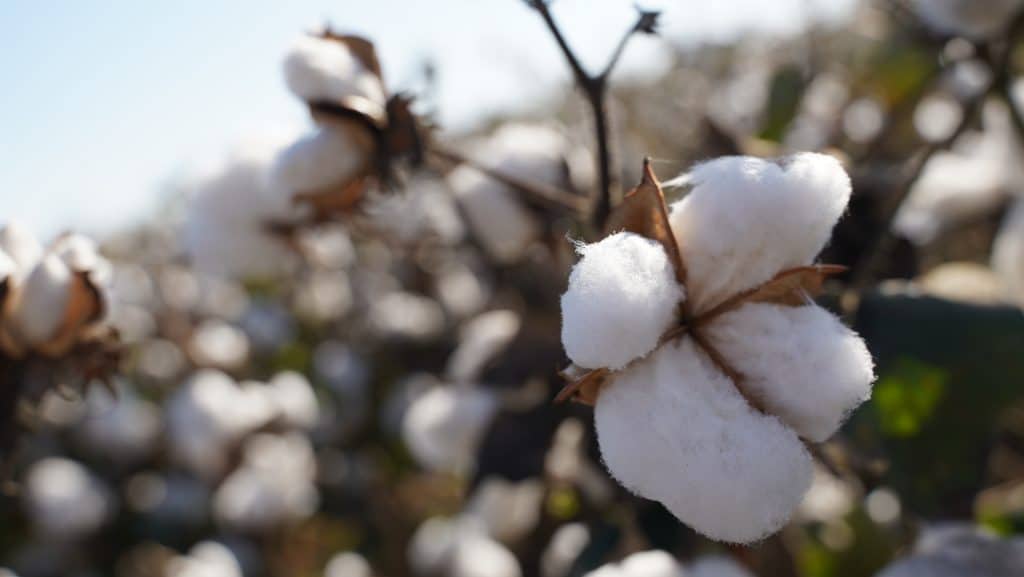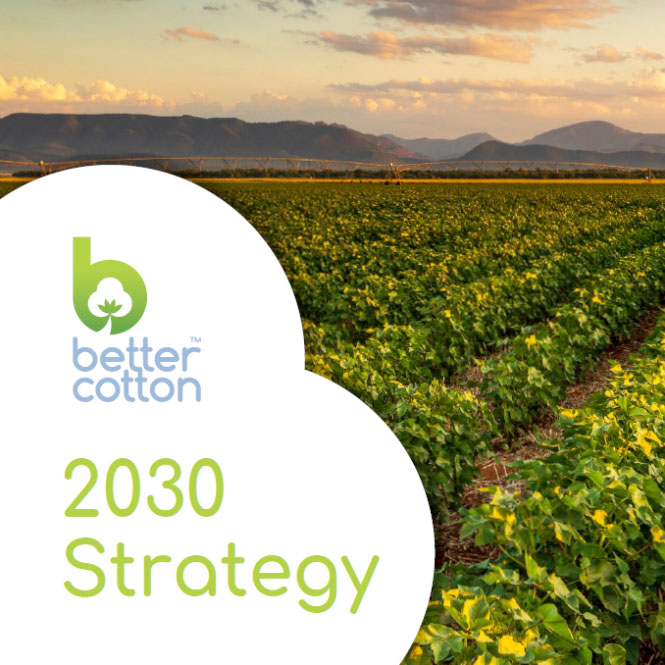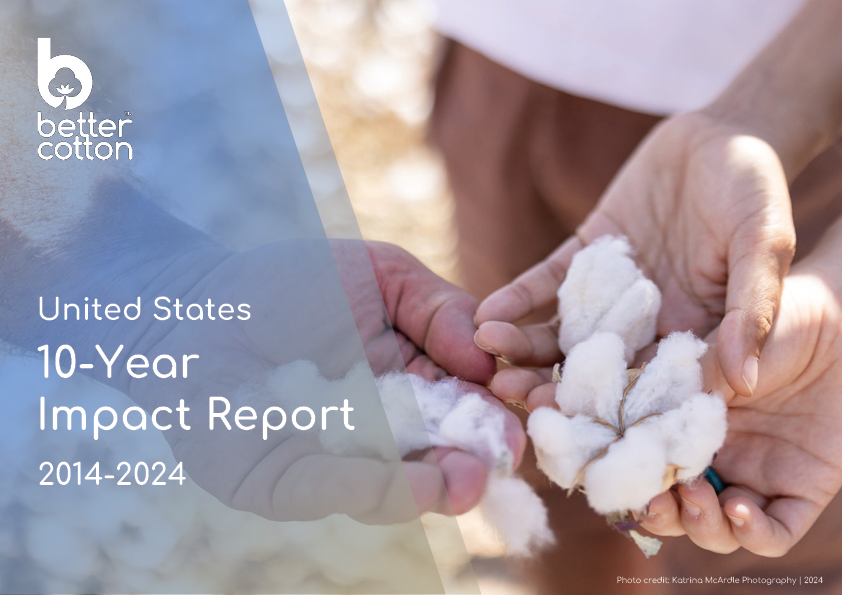- Who we are
- What we do
In just over 10 years we have become the world’s largest cotton sustainability programme. Our mission: to help cotton communities survive and thrive, while protecting and restoring the environment.
- Where we grow
Better Cotton is grown in 22 countries around the world and accounts for 22% of global cotton production. In the 2022-23 cotton season, 2.13 million licensed Better Cotton Farmers grew 5.47 million tonnes of Better Cotton.
- Our impact
- Membership
Today Better Cotton has more than 2,700 members, reflecting the breadth and diversity of the industry. Members of a global community that understands the mutual benefits of sustainable cotton farming. The moment you join, you become part of this too.
- Associate Membership
- Civil Society Membership
- Producer Organisation Membership
- Retailer and Brand Membership
- Supplier and Manufacturer Membership
- Find Members
- Member Monitoring
- Better Cotton Platform
- myBetterCotton
- Resources – Better Cotton Conference 2022
- Complaints
- Whistleblowing
- Safeguarding
- Get Involved in the Better Cotton Programme
- Thank you for contacting us
- Better Cotton’s Data Privacy Policy
- Log in
- Members’ Area
- Request for Proposals
- Better Cotton Cookie Policy
- Web Reference
- Measuring Cotton Consumption
- How to Implement the Chain of Custody Standard
- Resources – Better Cotton Conference 2023
- Certification Bodies Old
- Latest
- Sourcing
- Latest
The founding premise of Better Cotton is that a healthy sustainable future for cotton and the people that farm it is in the interests of everyone connected with it.
Let us help you find what you’re looking for
Results for {phrase} ({results_count} of {results_count_total})Displaying {results_count} results of {results_count_total}


By Natalie Ernst, Farm Sustainability Standards Manager at Better Cotton
At Better Cotton, we recently announced that we have completed the latest revision of our Principles and Criteria (P&C). The P&C is our farm-level standard, setting the licencing requirements that our over two million farmers worldwide have to comply with in order to sell their cotton as ‘Better Cotton’. It helps us to direct our efforts towards areas that deliver clear sustainability improvements at field level, and is a key driver in reaching our ambitious 2030 Strategy.
In 2021, we launched a substantive revision process of the Principles and Criteria. The aim was to align the P&C with global sustainability frameworks and respond to the market’s need for more stringent sustainability requirements, whilst also remaining realistic in our expectations at field level and further strengthening our approach to continuous improvement. We also wanted to ensure that we align with our 2030 Strategy, learnt from the past, filled gaps and retained successful elements of our past standard.
This revision was conducted in compliance with the Codes of Good Practice from ISEAL, a leading authority on sustainability standards. But what exactly is ISEAL, what is Better Cotton’s relationship with the organisation, and what impact did this have on the revision of the Principles and Criteria?
What is ISEAL?
ISEAL is an organisation that exists to support ambitious sustainability systems and their partners to tackle the world’s most pressing challenges. It has a growing global network, with members working across more than a hundred countries, in sectors from forestry and seafood to biomaterials and extractives.
The organisation’s Codes of Good Practice support sustainability systems to improve how they operate and deliver greater impact, while its Credibility Principles help businesses and governments make informed choices about the systems they work with, pushing the schemes to further improve.
What is Better Cotton’s relationship with ISEAL?
Better Cotton has been a very active and committed member of ISEAL since 2014. We are now a Code Compliant Member, a status which designates members who have successfully undergone independent evaluations against the ISEAL Codes of Good Practice in Standards-Setting, Assurance and Impacts. Other ISEAL Code Compliant Members include Fairtrade, Rainforest Alliance, Forest Stewardship Council and Marine Stewardship Council.
What does our compliance with ISEAL mean for our P&C revision?
The P&C revision was carried out in compliance with the ISEAL Standard Setting Code of Good Practice v.6.0, which provides a ‘globally recognised framework, defining practices for effective and credible sustainability systems’. The ISEAL Standard Setting Code requires members to observe best practices to ensure the following among others:
- Sound and clear standard setting procedures
- Stakeholder inclusion and participatory consultation
- Relevance and effectiveness of requirements
- Transparency and record keeping
- Consistency between standards and local applicability
- Resolution of complaints
This mandatory evaluation of these requirements encourages members to really consider and implement good practices and recommendations, making the codes highly effective and credible.
The Standard Setting Code was an incredibly useful tool when it came to shaping the P&C revision, providing a clear and practical framework to ensure that the process was inclusive, transparent, and targeted.
In addition, the access that our ISEAL membership gives to other standard systems allowed us to gather information and learnings from other organisations working on similar projects, enabling us to exchange best practices and find out how others dealt with challenges in defining their requirements.
Similarly, ISEAL provided us with various sources of information, including webinars and publications, that we were able to tap into during the revision, covering both specific technical details and the role of standards more broadly.
Finally, following ISEAL’s code brings increased credibility and trust in our value chain. Stakeholders can have confidence in the fact that the process has been validated by an internationally recognised leader in sustainability standards.
In summary, our membership with ISEAL was a critical part of the revision of our Principles and Criteria, which has led to more effective sustainability requirements, increased credibility and greater ownership among our various stakeholders. To find out more about the revision, please click here.


